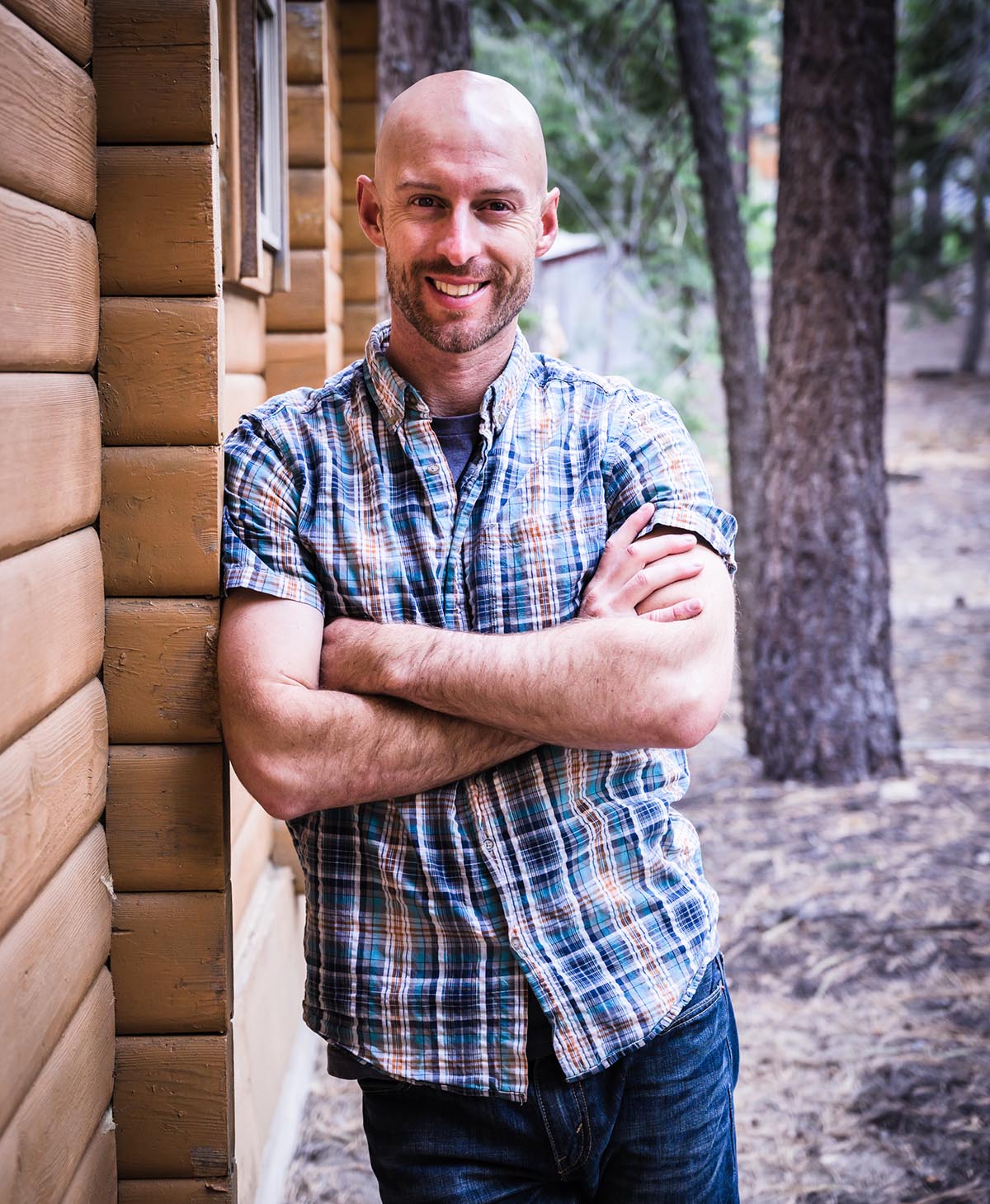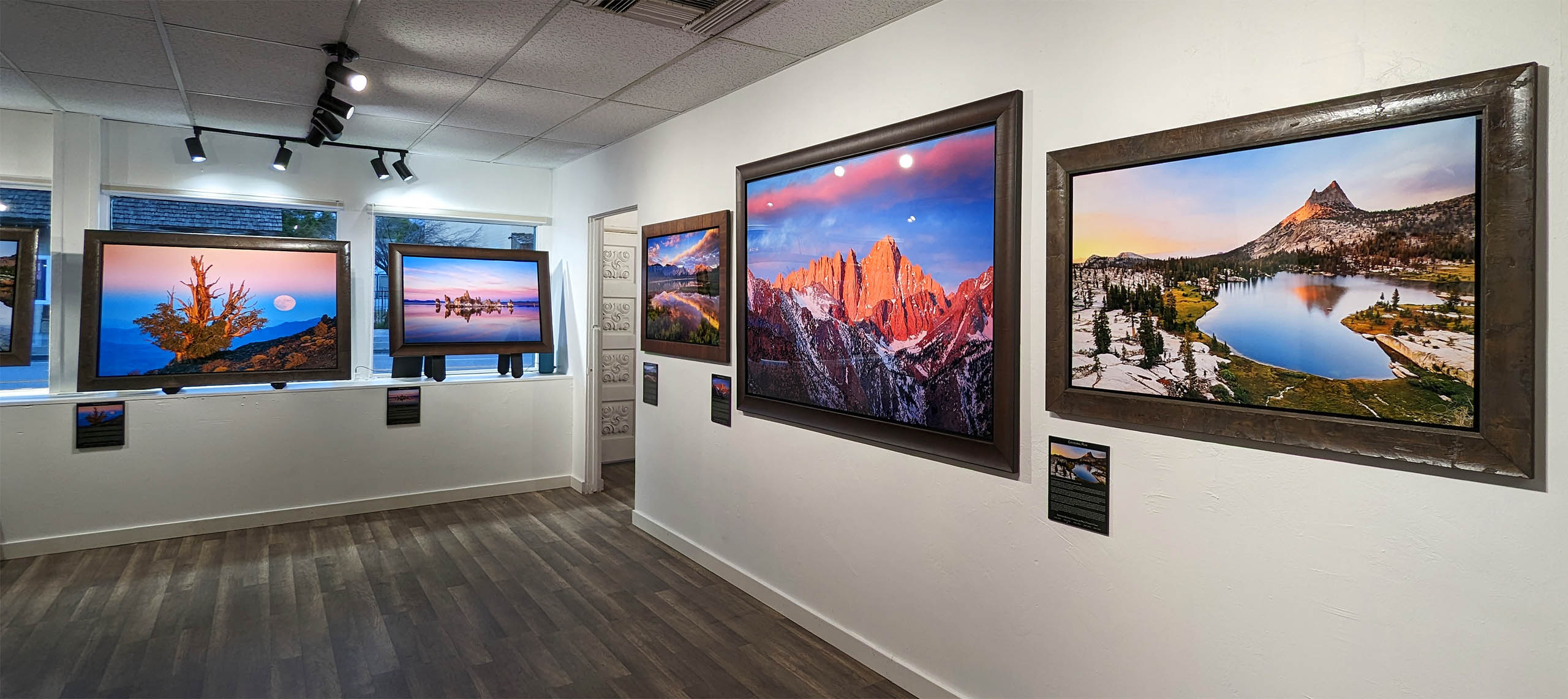In this workshop we will cover the beginner and intermediate astrophotography skills necessary to give you confidence in creating stunning Milky Way landscape photos. Join professional landscape photographer Joshua Cripps in the breathtaking Eastern Sierra to photograph the Milky Way in conjunction with the beautiful landscapes of this unique area. Lone Pine will be our base for this class, and we will explore the Alabama Hills as well as the surrounding landscapes in search of our astro photos.
This Eastern Sierra Milky Way photography workshop is comprised of two classroom sessions, two field excursions, and two processing sessions. In the classroom we will learn everything that goes into making beautiful Milky Way and star photographs, including the required gear, using the PhotoPills App, artistic and technical approaches to shooting the stars, understanding the Milky Way’s movement, planning the shot, problem solving, and best practices. We will work together as a group to plan our shots, then go into the field to bring them to life!
During the class we will have two field sessions to photograph the Milky Way in alignment with the wonderful natural features of the area, such as Mobius Arch, Boot Arch and the other amazing formations of the Alabama Hills. All our shoots will take place after sunset, late into the night to allow for ample opportunities for shooting.
The classroom and post processing sessions for this class take place at The Mount Whitney Gallery in downtown Lone Pine, California.
Arrive at The Mount Whitney Gallery in the early afternoon (the exact time will be sent to you via email).
Note: all times will be sent to you via email prior to the workshop. Itinerary is subject to change at any point.
This class is aimed at beginner and intermediate photographers. Specifically, it’s for anyone who wants to become confident creating beautiful Milky Way and night sky photographs.
This class does NOT cover:
This is a low physicality workshop, with 5-15 minute gentle walks to reach our shooting locations.
That being said, there may be some short descents and climbs, the ground is soft and uneven in places, and there may be some rocks to walk over or step up onto.
Expect warm/hot days and cool/warm nights, with clear skies most nights.
Due to variable conditions, I recommend bringing multiple layers of non-cotton clothing, like Merino wool, fleece, or synthetic fibers. Specifically you should bring:
This area has some of the darkest skies in the US, and having stunning star visibility is almost assured. However, in the this area can be unpredictable and we make no guarantees regarding clouds, clear skies, rain, sun, or Milky Way visibility. No refunds will be given in the event the weather prevents us from photographing the stars.
This Milky Way photography workshop meets in Lone Pine, California, 3-4 hours north of Los Angeles, 4 hours west of Las Vegas, or 1 hour south of Bishop. The class location is:
The Mount Whitney Gallery
126 N Main Street
Lone Pine, CA 93545
You are responsible for your own transportation during this class, but we will organize carpools for the excursions.
Lodging and meals are up to you. Lone Pine has a wide array of dining and lodging options, from inexpensive to high end. There is lots of camping in the area. Please let us know if you need lodging suggestions.
Payments are refundable up to two weeks before the workshop, less a $100 administrative fee.
If we cancel this workshop due to unforeseen circumstances, we will refund your tuition or transfer it to another class.
Weather Policy
We make no guarantees regarding clouds, clear skies, rain, sun, or Milky Way visibility. Because we plan to photograph no matter what the conditions are, no refunds will be given in the event weather prevents us from photographing the Milky Way.
We do not currently have any COVID-19 requirements. That being said, if you feel sick before the class, please stay home and let us know. We will transfer your registration to another class of your choosing.
This policy will be updated as CDC, WHO, Federal, and state guidelines change.
Please download and sign this form, and bring it with you to the initial meeting. You can also email us a digital signed copy.
During this workshop we may take behind the scenes photos and videos of the participants. These photos are used to share among the group, as well as for promotional purposes on our website or other marketing materials. If you would prefer to not have your image appear in these materials, please let us know.

Joshua Cripps is a renowned landscape photographer who has garnered worldwide acclaim for his breathtaking images of our planet’s wild places. His photos have been published by the likes of National Geographic, NASA, CNN, BBC, and Nikon Global.

The Mt. Whitney Gallery was founded in 2023 by Joshua Cripps as a way to share his passion stunning landscapes of the Sierra Nevada and beyond.
Set at the foot of the breathtaking Sierra with a view of the range’s highest peaks, the gallery features large format, museum-caliber fine art prints of Josh’s signature photographs.
Course Login | Results Disclaimer | Terms and Conditions | Privacy Policy
© Copyright – Joshua Cripps Photography
Get free tutorials, workshop invites, and exclusive photo tour updates delivered to your inbox.
📷 Easy-to-follow video and written tutorials
🌄 Early access to photo tours & workshops
🧭 Pro tips from real-world shooting experience
No spam. Unsubscribe anytime.
